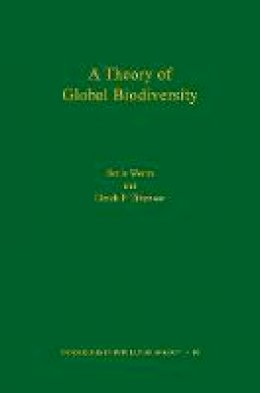
Stock image for illustration purposes only - book cover, edition or condition may vary.
A Theory of Global Biodiversity (MPB-60)
Boris Worm
€ 67.43
FREE Delivery in Ireland
Description for A Theory of Global Biodiversity (MPB-60)
Hardback. BIC Classification: WZ. .
The number of species found at a given point on the planet varies by orders of magnitude, yet large-scale gradients in biodiversity appear to follow some very general patterns. Little mechanistic theory has been formulated to explain the emergence of observed gradients of biodiversity both on land and in the oceans. Based on a comprehensive empirical synthesis of global patterns of species diversity and their drivers, A Theory of Global Biodiversity develops and applies a new theory that can predict such patterns from few underlying processes. The authors show that global patterns of biodiversity fall into ... Read more
The number of species found at a given point on the planet varies by orders of magnitude, yet large-scale gradients in biodiversity appear to follow some very general patterns. Little mechanistic theory has been formulated to explain the emergence of observed gradients of biodiversity both on land and in the oceans. Based on a comprehensive empirical synthesis of global patterns of species diversity and their drivers, A Theory of Global Biodiversity develops and applies a new theory that can predict such patterns from few underlying processes. The authors show that global patterns of biodiversity fall into ... Read more
Product Details
Publisher
Princeton University Press
Format
Hardback
Publication date
2018
Condition
New
Number of Pages
232
Place of Publication
New Jersey, United States
ISBN
9780691154831
SKU
V9780691154831
Shipping Time
Usually ships in 15 to 20 working days
Ref
99-15
About Boris Worm
Boris Worm is Killam Professor of Biology at Dalhousie University. Derek P. Tittensor is adjunct professor of biology at Dalhousie University and senior marine biodiversity scientist at the United Nations Environment Programme World Conservation Monitoring Centre.
Reviews for A Theory of Global Biodiversity (MPB-60)
The pattern of high diversity at the equator and declining diversity at the poles is one that holds true for many taxa, and a universal explanation for this pattern has long been sought by ecologists, naturalists, and evolutionary biologists, among others. This well-written and organized book brings simple mechanistic ecological and evolutionary theory to bear on the problem. There is ... Read more
